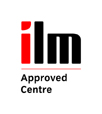Campaigning effectively during a tough economic climate
In the current time many organisations are becoming increasingly worried and thoughts turn to reducing overheads where possible to help ride out the storm.
Historically one of the first things many consider reducing during times of economic downturn is the marketing budget. While it is certainly sensible to reassess spending at such times, cutting activity in the wrong areas can have a damaging impact on long-term stability.
At this time no company can afford to rest on its laurels and assume that customers will remain loyal. Instead it is vital to think about securing a consistent pipeline of new business and funding streams. The marketplace is set to become more competitive so success will lie in staying ahead of the pack. This means that raising awareness and driving action amongst your target market are increasingly important, and generating effective media coverage is a particularly cost-effective method for communicating the right messages to new and potential clients.
A well-managed, strategic public relations campaign can improve positioning and reputation, providing credibility and communicating key selling points over the competition. PR provides the next best thing to a word of mouth recommendation except that it is reaching thousands of people rather than one or two.
However, contrary to the popular saying, not all PR is good PR! It is essential that any campaign (in-house or with an external agency) is focused around clear business objectives and not done just for the sake of it. It’s all very well securing press coverage but if it’s not helping the organisation then what’s the point?
Activity needs to be targeted from the start ensuring that the business is only featured in relevant media. Journalists also need to be approached in the appropriate manner. Sending out untargeted and badly written press releases will either result in pitches being ignored or generate entirely the wrong kind of attention.
Most media contacts receive hundreds of news stories every day. Failure to appreciate the nature of their job and how to present company information can irreparably damage your reputation. Take time to get to know the journalists and publications that are most relevant and demonstrate this knowledge when making contact, perhaps by referencing a previous article or adding something to an existing debate.
Bear in mind three key words when considering whether a story or idea is newsworthy: new, true and interesting. If you can fulfill those criteria then you are on the right lines. Think like a journalist in terms of what the publication’s readers will be interested in and your media relations activity will evolve to a more effective stage.
By Kim Stoddart, Founder of Blue Rocket Group www.bluerocketgroup.com
Need Help?
Our business coaches arehere to help. Find out more about our businesscoaching services or email us at coaching@stridingout.co.ukto arrange a chat with one of our coaches.





